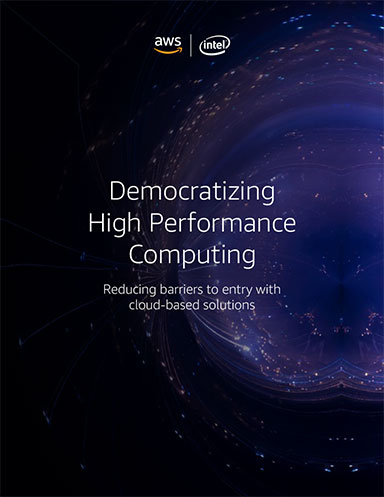Democratizing High Performance Computing
Reducing barriers to entry with cloud-based solutions. Cloud-based solutions are helping to break down barriers to entry for even the smallest teams.

January 2, 2020
High Performance Computing (HPC) has reshaped some industries and enabled others—but it has been difficult for smaller organizations to access because of large up-front costs and planning difficulties.
But cloud-based solutions are helping to break down barriers to entry for even the smallest teams, and many different industries are finding it much easier to get started in HPC as a result.
Between a broader range of flexible cloud solutions and an ever-growing set of third-party solutions to assist with onboarding, planning, and management, HPC resources are now within reach for almost everyone who needs them.
High Performance Computing brings a powerful set of tools to a broad range of industries, helping to drive innovation and boost revenue in finance, genomics, oil and gas extraction, and other fields. For many smaller organizations, on-premises HPC infrastructure is too expensive to procure and maintain.
They have been forced to make do with renting time on others’ supercomputers, outsourcing design and engineering tasks, or running their applications on whatever computing hardware they can afford. Even within larger organizations that can afford to host their own HPC infrastructure, engineers and researchers must compete for scarce computing resources. But cloud-based HPC solutions are putting vast computational capabilities within reach of more and more organizations—and offering greater flexibility as well.
Using cloud-based HPC lets organizations get started quickly and start to realize benefits almost immediately. Many see faster innovation thanks to shorter turnaround times and improved flexibility, and collaboration is greatly enhanced between teams that might not be able to work together otherwise due to geographical or other logistical considerations. Cost optimization is also a key factor when considering cloud-based HPC—it is much simpler to predict and manage budget and resource use in the cloud.
Many startups and independent researchers who had not even considered buying and setting up their own HPC infrastructure because of perceived up-front costs are finding that it’s now easier than ever—and much less expensive—to dive into cloud-based HPC. The ability to configure massive parallel computing clusters on demand in the cloud changes the rules—any team with a need for compute resources to solve a problem can start working on it in hours or days. As more organizations adopt cloud-based HPC, more applications, ISVs, and systems integrators are creating better and better solutions for a wider range of users.
Fill out the information below to download the resource.
Latest News









